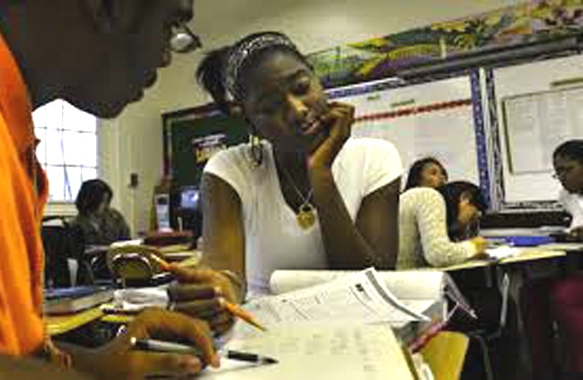We tell our children to “get an education.” “School gives you the tools you will need to build a better future.” “Attend.” But what no one says aloud is there are restrictions. You are on a schedule. Earn a diploma, by all means, but only if you do it before the clock strikes, “The End.” When might that be? Well, it depends. The amount of time a student has to complete a public high school degree varies. What state do you live in?
In some states, laws that are one hundred years old dictate a minimum or maximum age at which students must be admitted to public school free of charge. The variance differs considerably by region. If a student drops out at the age of 16 or 17, it may be too late. That young person may discover the school will not reinstate. If a child misses too many classes, no education will be delivered. No, it is not the absences that solely affect your decisions; it is the state that deems “you do not rate.”
Most states enacted these compulsory school attendance laws between 1870-1910, a time when fewer than 10 percent of 17 year olds graduated from high school. In fact, fewer than 15 percent of 14-17 year olds were even enrolled in high school in any given year before 1910.1 In an economy that was still significantly agrarian, a high school education was not a prerequisite to participating in the mainstream workforce.
Yes, that is where we live. We live in the past and our youth live today. It is a strange dichotomy. How could it be that we encourage the young to get a good education and then we take it away.
Even when a compulsory age law is raised, a child may realize there are limits. She or he can be still denied the right to a free public education; there may be restrictions within the state. Often districts are given discretion. Again, there is a need . Do we further regulate or just debate.
The questions are many. Do we serve our children? Do we provide for their needs? Do we allow them to live and breathe? Well again, it depends. What do we believe? Is education an evolution?
Might it be that we error, we reflect, we learn without end? That is an education. And perhaps it is time to revise legislation. Please consider…
Stories from the field: SPLC Legislation Helps Louisiana Youth Receive Second Chance At School | Southern Poverty Law Center
Jessica* was a 10th-grader in a small school district outside of New Orleans when she withdrew from school because she was pregnant.
After having her baby, she wanted to finish high school and get a diploma. But school officials said she was no longer eligible for public school because she was 17, had voluntarily withdrawn and was a parent.
John* faced a similar situation. He had been held back a grade twice – once because of the disruption caused by Hurricane Katrina in 2005 and a second time because of his performance on statewide assessment tests.
Although he was on track to graduate from high school when his family moved back to the New Orleans area in the summer of 2012, school administrators said he wouldn’t be permitted to return to school in Louisiana because he was already 18.
Those of us in the SPLC’s New Orleans office wanted to help Jessica and John. But we quickly learned that Louisiana was one of a handful of states that didn’t articulate a maximum age for students attending public school.
In fact, kids in Louisiana had no right to stay in school once they turned 18 and were no longer subject to the state’s compulsory attendance law. With 36,000 students being retained a grade each year in the state – frequently due to high-stakes testing – we realized the scope and magnitude of this problem.
We decided to propose legislation that would permit students to stay in school or return to school so they could graduate. The legislation would also specifically address the right to return to school for teens who were pregnant, who were parents or who had voluntarily withdrawn.
Once we drafted legislation, we gathered data, research and client stories to support the campaign. We also identified potential allies and opponents, and we sought assistance from key stakeholders.
Last January, we were able to find three legislators, an unlikely alliance of Republicans and Democrats, to sponsor the legislation. We were also able to work in partnership with key state and local agencies, as well as children’s advocacy groups, to generate support for the legislation.
With hard work, the legislation gained overwhelming bipartisan support. Both chambers of the Louisiana Legislature passed it without opposition. In June, Gov. Bobby Jindal signed the bill into law.
We are thrilled that this important legislation provides students who want to learn with the opportunity to remain in or return to school, and we look forward to continuing to advocate on behalf of students like Jessica and John.
*Client names have been changed to protect their identities.
Eden Heilman is the managing attorney in the SPLC’s New Orleans office.
This piece was reprinted by EmpathyEducates with the kind permission of the Southern Poverty Law Center. We thank SPLC for their dedication to Human and Civil Rights and for their deeds.












Leave A Comment